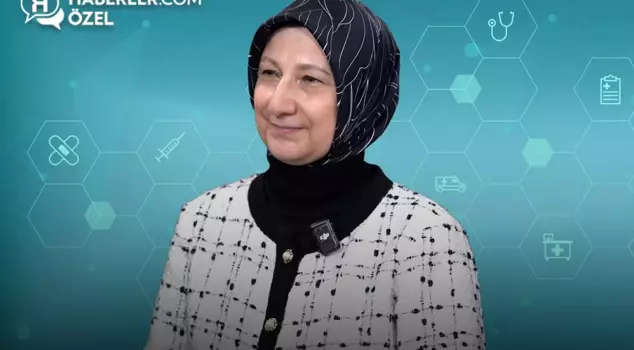
14.10.2025 16:57
In the "Healthiest with Meral Karadağ" program hosted at Haberler.com studio, Ear, Nose, and Throat Specialist Prof. Dr. Fatma Tülin Kayhan emphasized that sleep apnea is not just a problem of snoring or insomnia, warning that "if left untreated, it can lead to sudden deaths."
In the Haberler.com studio, the guest of the program "The Healthiest with Meral Karadağ" was Ear, Nose, and Throat Specialist Prof. Dr. Fatma Tülin Kayhan. Answering questions from Meral Karadağ, Kayhan explained the causes of sleep apnea, treatment methods, and common misconceptions. Prof. Dr. Kayhan stated that sleep apnea is not just a problem of snoring or insomnia, and if left untreated, it can lead to fatal consequences.
"SLEEP APNEA CAN LEAD TO SUDDEN DEATHS"
Prof. Dr. Kayhan noted that in patients with severe sleep apnea, blood oxygen levels drop to critical levels, saying, "If sleep apnea is severe, patients can experience sudden deaths during sleep. Normally, blood oxygen saturation is around 95 percent, but in apnea patients, this rate drops below 90. This creates serious stress in the body," he stated.
Kayhan explained that with the drop in oxygen, stress hormones like adrenaline and cortisol come into play, which can lead to issues such as high blood pressure, heart rhythm disorders, palpitations, insulin resistance, and diabetes.
"WEIGHT GAIN AND METABOLIC SYNDROME MAY BE DUE TO APNEA"
Emphasizing that sleep apnea not only causes shortness of breath but also leads to metabolic disorders, Prof. Dr. Kayhan said, "In untreated patients, weight gain is observed because insulin resistance begins. Diabetes, cholesterol, and cardiovascular diseases also accompany this process."
"THE PATIENT WAKES UP BUT DOES NOT REMEMBER"
Describing how individuals with sleep apnea enter a cycle of waking up without being aware, Kayhan said, "The body's oxygen level drops, and the defense mechanism kicks in. The patient wakes up continuously, struggling with a feeling of suffocation, trembling, and moving their arms and legs, but does not remember this. Therefore, sleep quality is severely impaired. A constantly interrupted sleep is a sleep with low oxygen." he stated.
"IF THESE THREE SYMPTOMS ARE PRESENT, A SLEEP TEST MUST BE DONE"
Prof. Dr. Kayhan stated that symptoms such as snoring, cessation of breath during sleep, and waking up tired in the morning are important in diagnosing sleep apnea, using the following expressions:
"We have three main complaints. Snoring, witnessed apnea (someone witnessing the cessation of breath during sleep), and morning fatigue. If these three symptoms are present, it is essential to suspect sleep apnea and conduct a sleep apnea test. Our gold standard is the Polysomnography test. By sleeping one night, we can understand whether the patient has apnea and what type it is through brain waves and EEG waves."